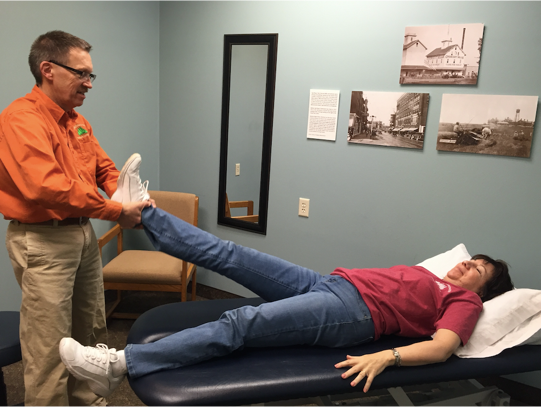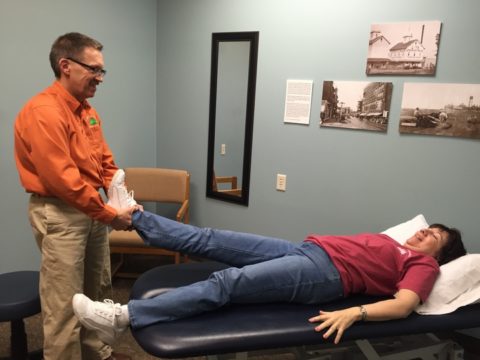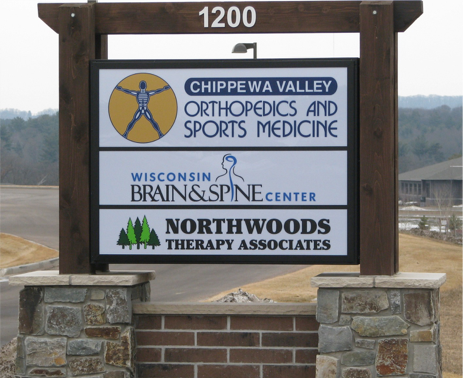Search Results for:
Sitemap
Site Map
Home
Procedures
• MAKO • DAA • HA • BTHA • ResurfacingSuccess Stories
• Elderly (55 – 65) • Athlete (15 – 25) • Referral PartnerSymptoms
• Groin Pain • Hip Pain • Knee Pain • Painful Joints (Joint Diseases) • Trouble Doing ActivitiesPatient Journey
• Your First Visit • Day of ProcedureDoctor Resources
• Therapy Protocols • Advice for Doctors • Risk Abatement • Recovery Expectations • Rehab ProtocolsPatient Resources
• Surgery Preparation • Recovery Documentation • Forms & DisclosuresAbout
• Meet Dr. Stewart • Our Team Top Level Navigation: • Locations • Access Patient Information (Link only – no page) • FAQs • Blog • Our System (links to Oakleaf/others) Footer Navigation • About • Contact • Locations • Privacy Policy • Terms and ConditionsSuccess Stories
A few of the many success stories in industry-leading Dr. Stewart’s orthopedic procedures.
Dr. Nathaniel Stewart has completed numerous orthopedic hip and knee surgeries that have helped patients get back to what they love doing most.
Surgery Preparation
Preparing for Orthopedic Surgery
Once you have been seen and evaluated by Dr. Stewart and are considered a candidate for joint surgery, you will meet with one of our surgery schedulers to set up a date for surgery. Dr. Stewart performs orthopedic surgery at Oakleaf Surgical Hospital, Sacred Heart Hospital and St. Joseph’s Hospital. If you have any underlying medical conditions such as diabetes, heart disease, or lung disease, you may not be a candidate to have your surgery performed at Oakleaf Surgical Hospital. This will be addressed with you at your appointment to see Dr. Stewart. You will see your primary care provider 1-2 weeks prior to your surgery for a preoperative physical examination to make sure you are medically fit to undergo orthopedic surgery with Dr. Stewart.
Hip – Preparations for Orthopedic Hip Surgery:
Knee – Preparations for Orthopedic Knee Surgery:Surgery Preparation
Working with Your Orthopedic DoctorYou will not be able to eat or drink anything after midnight the day prior to your orthopedic surgery. There are certain medications that you must avoid prior to surgery including aspirin, anti-inflammatory medications (ibuprofen, Aleve) and anticoagulants. Click here to see a full list of medications that must be discontinued prior to joint surgery and how many days prior to surgery they must be stopped. Your primary care provider will also address which medications you can and cannot take prior to surgery at your preoperative physical examination. You will also receive a packet of information about your upcoming surgery from the hospital you will be having your surgery at, which will further explain the surgical preparation process.
If you are scheduled for a joint replacement (hip or knee) surgery, there are joint camps that you can attend prior to your surgery to gather more information about the joint surgery and recovery process. Both Sacred Heart Hospital and Oakleaf Surgical Hospital provide these classes for our patients and they will contact you about upcoming classes. At the joint camp, you will learn which assistive devices you may require after hip or knee surgery. We also send all of our patients undergoing joint replacement to preoperative physical therapy where you will learn some of the exercises you will be doing postoperatively. The physical therapists will also assess which assistive devices or medical equipment may be helpful for you to have at home once you are discharged from the hospital.
If you become sick or have any medical conditions that require antibiotic use within 2 weeks of your surgery, please contact our office immediately. It is likely that if you are placed on antibiotics or are ill your surgery will be postponed until you have recovered. If you have any questions regarding your upcoming surgery, please contact our office and we’d be happy to answer your questions.
Medications to Avoid Before Surgery
Symptoms
 How We Treat Joint Pain & Arthritis
How We Treat Joint Pain & Arthritis
We treat a variety of joint pain symptoms, from knee pain to arthritis pain in the Eau Claire, Altoona, and Chippewa Falls area.
Some common symptoms that you may experience are groin pain, hip pain, knee pain, arthritis pain, joint pain, and trouble doing activities. If you experience any of these symptoms, schedule an appointment with Dr. Stewart.
With a special interest in hip and knee surgery, Dr. Nathaniel Stewart is a member of the American Association of Hip and Knee Surgeons and has written numerous articles on hip arthroscopy, direct anterior hip replacement, and knee surgery. You can learn more about some of his more common procedures to address joint pain below.
Information on Joint Pain Symptoms You May Be Experiencing:
Terms and Conditions
Terms and Conditions
Nathaniel Stewart MD Orthopedic Surgeon Joint Reconstruction & Trauma Chippewa Falls WI
Please remember that medical information provided by Nathaniel Stewart MD Orthopedic Surgeon Joint Reconstruction & Trauma Chippewa Falls WI and Your Practice Online, in the absence of a visit with a health care professional, must be considered as an educational service only. The information sent through e-mail should not be relied upon as a medical consultation. This mechanism is not designed to replace a physician’s independent judgement about the appropriateness or risks of a procedure for a given patient. We will do our best to provide you with information that will help you make your own health care decisions.
Many external links have been provided on this site as a service and convenience to our patients and other visitors to our website. These external sites are created and maintained by other public and private organizations. We do not control or guarantee the accuracy, relevance, timeliness, or completeness of this outside information.
If you require to find out more please email us on info@yourpracticeonline.net
Therapy Protocols
Resources For Therapy Protocols
Below you will find informative documentation to help with various therapy protocols that Dr. Stewart uses. Feel free to download or contact us with any questions.

Using Orthogrid and Artificial Intelligence
Your First Visit
Thank you for your interest in an appointment with Dr. Stewart.
Below you will find information to help you during your first visit.
 At your first appointment with Dr. Stewart we will have you fill out a new patient form that will allow us to learn more about your specific symptoms and your general health. Please bring a list of any medications you are currently taking so we can accurately document it in your medical record. Next, you will be brought back to one of our spacious patient examination rooms where you will be seen by one of Dr. Stewart’s physician assistants. We will be very attentive and listen carefully to your symptoms and gather a complete medical history from you in order to better serve your needs. You will then be examined, which often includes getting up onto an examination table so that we can more thoroughly assess the involved joint or joints.
At your first appointment with Dr. Stewart we will have you fill out a new patient form that will allow us to learn more about your specific symptoms and your general health. Please bring a list of any medications you are currently taking so we can accurately document it in your medical record. Next, you will be brought back to one of our spacious patient examination rooms where you will be seen by one of Dr. Stewart’s physician assistants. We will be very attentive and listen carefully to your symptoms and gather a complete medical history from you in order to better serve your needs. You will then be examined, which often includes getting up onto an examination table so that we can more thoroughly assess the involved joint or joints.
It is often necessary to order an x-ray of the affected joint in order to better evaluate your condition and determine a specific diagnosis. We are very fortunate to have the capability of obtaining an x-ray the same day as your appointment so that when Dr. Stewart comes in to see you, he will have all the necessary information to educate you on your specific diagnosis.
Once you have been seen and evaluated by one of the physician assistants, Dr. Stewart will come in and examine you as well. He will carefully explain your diagnosis, demonstrate any abnormalities on the imaging studies and lay out various physical, medical and surgical treatment options for your specific condition. Our team will collaborate with you to create an individualized treatment plan that suits you and your family’s needs.



